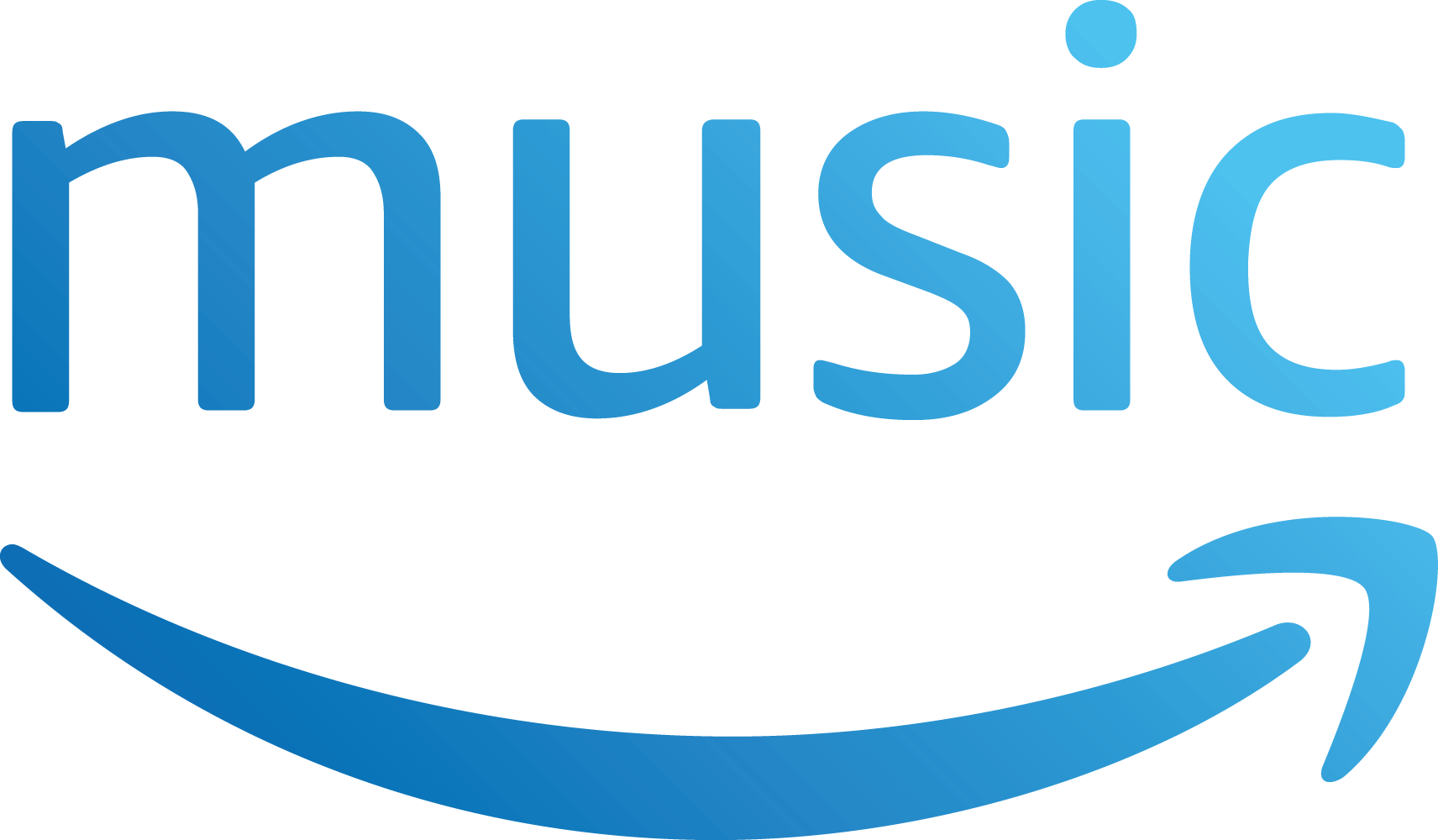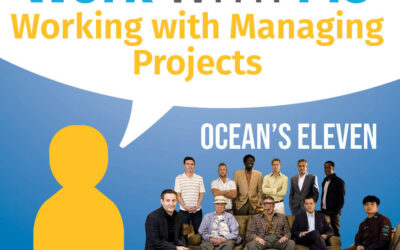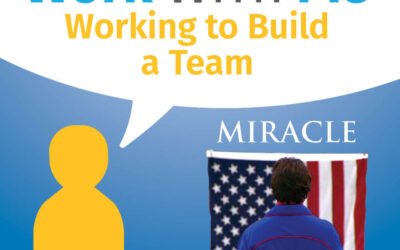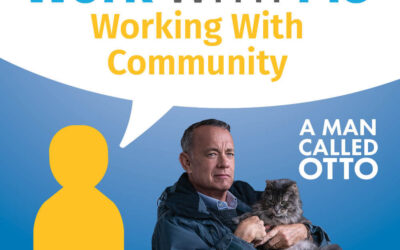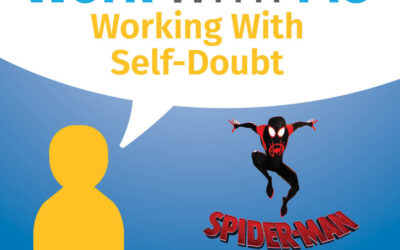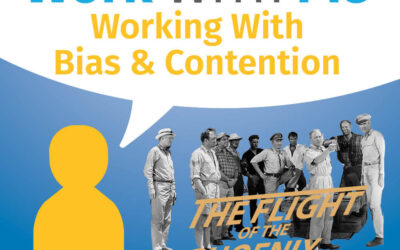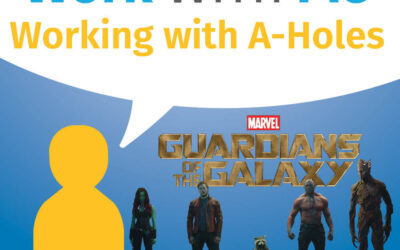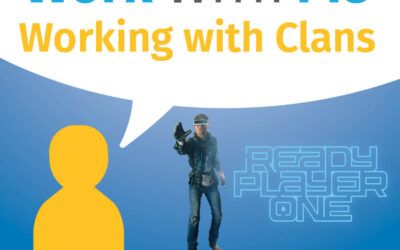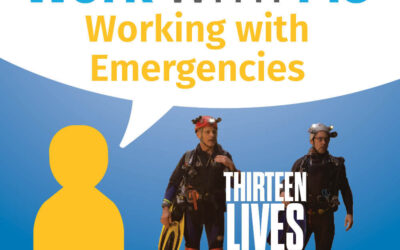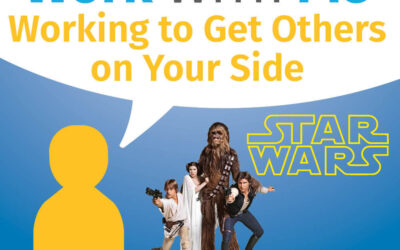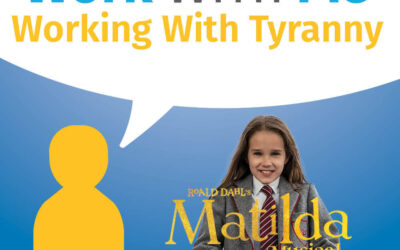Work With Change
How do we different people deal with change? Jurassic Park (1993) is a great movie that provides us plenty of fodder as we discuss how we deal with innovation, information silos, communication methods and more. (*spoiler warning*)
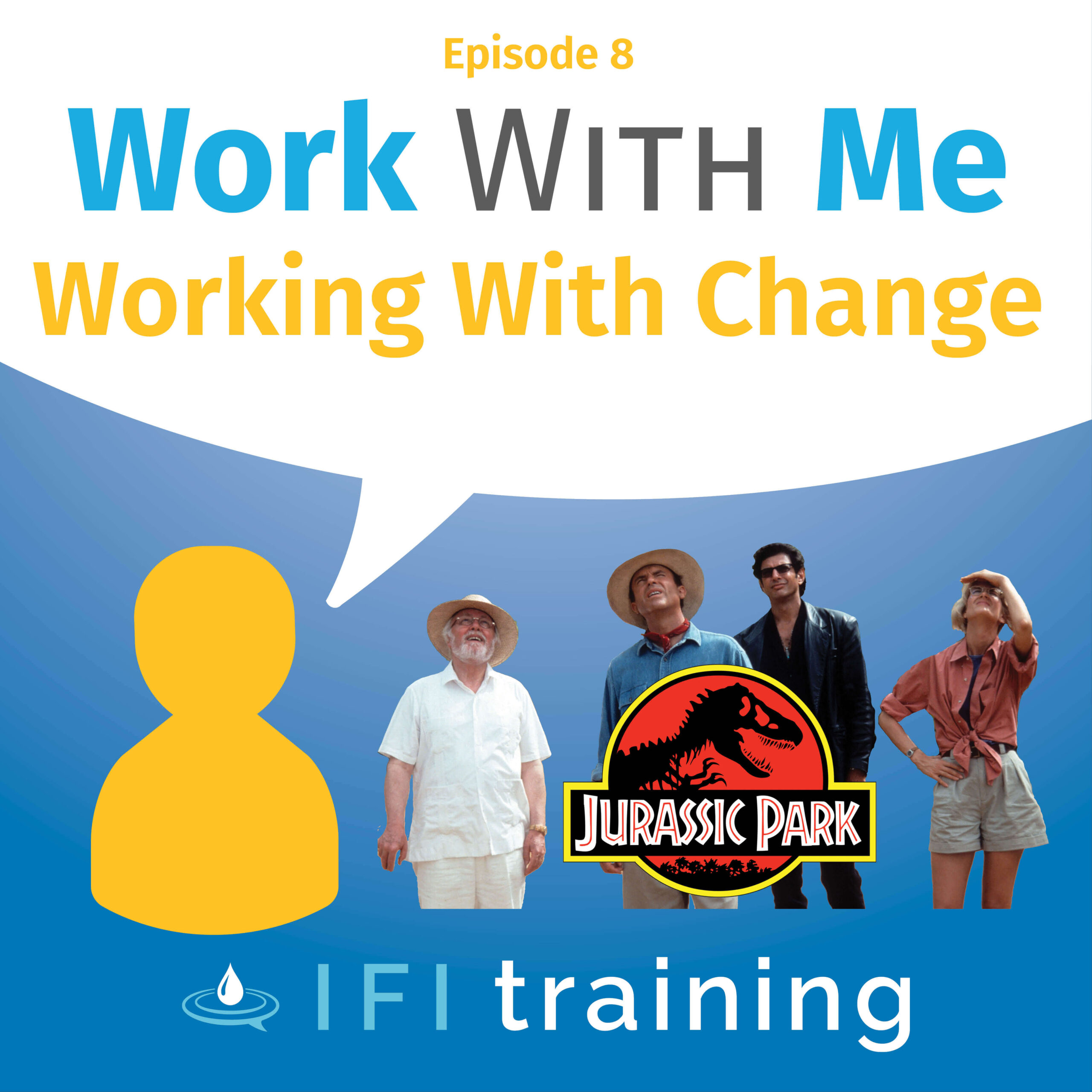
Show Notes & Resources
“In times of change learners inherit the earth; while the learned find themselves beautifully equipped to deal with a world that no longer exists.”
Eric Hoffer
Learn More about the Podcast
The Work With Me Podcast is dedicated to helping you improve your workplace relationships and elsewhere. You can take the Jungle Motives personality quiz at JungleMotives.com. Please follow us wherever you listen to podcasts and rate us 5 stars.
Transcript
Transcript for 008 Working With Change | Jurassic Park
Intro (00:00:00)
Scott
Change will happen. The only way we die is when we plant our feet and refuse to move. In our manuals we have a quote at the beginning of every manual, it says, “In times of change learners inherit the earth; while the learned find themselves beautifully equipped to deal with a world that no longer exists.” So, how do we adapt to change, which will inevitably come? How do we make the best of ti?
Richard
Welcome to the Work With Me podcast where we help you solve people problems at work. As always, this podcast is sponsored by IFI Training. I’m Richard.
Scott
I’m Scott.
Susan
… and I’m Susan.
Richard
Each week we dive into media and pop-culture references using IFI Training’s 3D relationships tool. With no previous experience, you’ll walk away with better, more actionable insights into how to get along with people at work.
Scott
This episode is all about how we should embrace change and we’re going to look at the movie Jurassic Park.
Susan
As always, we’ll use IFI’s 3D Relationship tool, which includes Personality; Spots and Stripes, which is about Character; and Herds. And today we’re going to talk a little more about Herds than we have in the past. Hers is about perspective—how we view things, how we learned to view things as we grow.
The Herds Model (00:01:31)
Scott
Out in the workplace they use a generational model, which is age-based and honestly doesn’t allow for change. For example, in the workplace I would be considered a Baby boomer, that’s when I was born. I can’t affect that. I can’t change when I was born. The challenge is if a Millennial and a Baby boomer can’t change their age, how do they interact? How do they come together? And esspecially, how do they change? So, our model of Herds deals better, we think, with that perspective because it’s not age-based and it allows for change.
Susan
The idea behind Herds is that people can learn to work with one another to appreciate and value and to adapt, to grow, to take on some of the traits of the other Herds that will help make them more effective in their jobs.
Richard
The underlying premise of both Herds, our tool, and a generational model is that the environment that you live in impacts your perspective about the world around you. So as you have different experiences in different circumstances, you are going to develop characteristics of different Herds. And one thing as we teach this tool that comes up quite often, is that people will say, “Well, I I feel like I may be more than one Herd.” And that’s totally possible. It depends on where you’re spending your time. And you could grow up in an environment that is very much grounded in one Herd and then move to a different place that is a different Herd. And you can, as you begin to develop relationships with others and spend more time in that environment, develop characteristics of that Herd.
Welcome to Jurassic Park (00:03:12)
Susan
So let’s talk about Jurassic Park just a little bit. I think most people are aware of the premise of the movie. John Hammond decides he wants to create a park with real dinosaurs along the lines of a theme park. He has to ensure the park. In order to do that he has to get some experts to sign off that the park is safe and worth insuring.
Scott
I think it’s important here to know that this is a work of fiction.
Susan
We have John Hammond, who has all the money; Alan Grant, who is a paleontologist who spends his time digging up dinosaur bones; Dr. Ellie Sattler, who is a paleobotanist who understands plants from the Jurassic period.
Richard
And Cretaceous and all the other periods.
Susan
But it’s Jurassic Park! Sorry, back to main characters. You have Ian Malcolm, Dr. Ian Malcolm, who is a mathematician that deals with Chaos Theory, which sounds scary but has a lot of value in this.
Scott
Yeah, you do have the two children, John Hammond’s grandchildren, Lex and Tim that come to the park to enjoy it. But those are the main characters. You’ve got Samuel L Jackson that plays a figure, not prominent, in the movie.
Susan
Wayne Knigh as Dennis Nedry, that’s an important character.
Richard
He’s in charge with setting up automation software for the park.
Scott
There will be spoilers to Jurassic Park.
Richard
We picked Jurassic Park because, obviously with Jurassic World: Dominion coming out it reminds us of that, and I know among the three of us here we all have different opinions about how good that one is, but the original 1993 Jurassic Park is a great film. And it has some great ideas in it. I love that it talks about change. It shows characters dealing with some real changes and if you think about when the novel came out in 1990 I think a lot of people are trying to figure out what this whole change DNA was going to mean for the world that we lived in. And I think it was a response, in a lot of ways, to how we adjust to some of these scientific advances.
Susan
And you have to embrace the role of innovation, the role of creativity.
Richard
I think one of the ways you see people deal with this change in DNA and being able to manipulate it and essentially synthesize your own dinosaur is obviously paleontologists have to figure things out. They have a job where they go on sites … once these paleontologist see the dinosaurs on the island Dr. Sattler asks Dr. Grant, “what are you feeling right now?” And his respons is, “We’re out of a job.” And Dr. Malcolm chimes in, “Don’t you mean extinct?”
Susan
We live in a world of change. And on the heels of everything that we’ve been through with covid-19, it’s easy to see how change can come out of nowhere. Covid did and all of the sudden the world didn’t look like it had looked before. How did that impact work? Well, for me it meant I didn’t work for 6 weeks. That’s scary. But even today in businesses we are seeing supply chain issues, employees who have loved working at home and don’t want to come back to the office … It’s changed things.
Scott
I think a lesson learned is, sometimes we have a tendency to face change by not facing change. We stop. We just want to get our bearings. We want to take a breath. And sometimes that effect of not wanting to press forward in an environment of change, if you’re paralyzed or you stop, that’s the worst thing. You’ve got to keep moving. Whether its manufacturing in a time of a pandemic or you’re being chased by a T-Rex, you got to keep moving.
Richard
Well, and it’s interesting because we can look at Jurassic Park and focus on this major technological breakthrough of the DNA sequencing but you look at smaller change at the beginning of the movie.Yyou get a little bit of Grant and Sattler out on the dig site. And Ellie says to this volunteer that they have operating this machine that kind of sense back some x-rays that doctor Grant is not computer-compatible, right? And it goes both ways. They’re not compatible with him ‘cuz he touches the screen in it kind of blips. So even small changes like that impact the work that we do. And you do see Grant who’s very resistant to this change. It happens to be a hallmark of the Herd that we call 2nd herders or Builders.
Builders, Finders and Explorers (00:07:45)
Scott
Builders, yeah. Ad I have to put myself in this category. Builders are people very resistant to technological change, it’s not all change. But we view new technology as something to be overcome, not something that will help us in life. And unless we’re forced to so, it’s one of those, kind of grudging things that, “okay, I really have got to learn a new version of Word? Didn’t I just get a new version of Word?”
Susan
I do think Builders are resistant to most forms of change, but we won’t go there for the moment. But I do want to talk about, in opposition to Alan Grant scroll you have Dr. Ellie Sattler, who seems to embrace change as it comes at her. Not that she’s excited about what she’s seeing but she sees the need to respond to the situation. If the power’s out, the power grid needs to be reset, and the guy that’s supposed to be doing it doesn’t get it done, she’s going to go make a happen. If there’s a problem and the the dinosaurs keep getting sick, she’s going to stick her hand in the pile of warm excrement till she can figure it out. She will do what it takes in any situation.Sshe seems to just run, run not necessarily to the change, but embrace it and do what has to be done as those needs present themselves.
Richard
So, she would probably be in the 3rd Herd which we call explorers. So she’s probably much more willing to at least entertain the ideas and look at how to practically implement them. So you have John Hammond who would be what we call a 4th Herder or a Finder. They’re much more willing to accept that change is not just a part of life, but it’s something to be embraced a lot of times. They are excited about the possibilities and see what things can become. And in this movie, even though I would bet that John Hammond is probably the oldest of the three of them (Scott: by far), he still has this, kind of always looking for these new changes. And while typically we associate 2nd Herders or Builders with Baby Boomers, that’s not always the case. That’s one of the things that we allow for in the Herds model.
Scott
Yeah, that is important— that it’s not age-based, right? ‘Cuz you’ve got a 4th Herder that is leading a technological change over much younger “generation” that are a lower Herd in this case.
Moral Change (10:20)
Richard
I think there’s also this change you see them deal with on the moral side. And you have the interesting conversation while they are all enjoying a dinner of sea bass—at least you’ve got Hammond and the three experts, Dr. Malcolm, Dr. Grant and Dr. Sattler, as well as the lawyer Gennaro—are all enjoying this Chilean sea bass as they discuss, kind of, the moral implications. And sometimes that’s hard to deal with as we talk about these major disruptors that come in and throw off industry. And we see questions like, “What are we supposed to do when self-driving cars displace taxi drivers or truck drivers?” And there are some real questions that you have to deal with. And the one thing I think that we can say safely is that sticking your nose in the ground isn’t going to help you deal with those moral questions that people have.
Scott
You have to keep moving. One of the scenes where Alan Grant is in a top of a tree with the kids, with Lex and Tim, and he feels a poke and he pulls out his Velociraptor claw that you see in the beginning of the movie and he’s still got it in his back pocket, and he looks at it and he tosses it out of the tree. And part of that is symbolic, right? “If we have live Velociraptors, why do I need a claw?” Now I do need to voice an objection here because the movie makers made the Velociraptor famous when, in reality, what they dug up and what they portrayed in the movie was the Utahraptor not the Velociraptor. Velociraptor’s are only about 4 feet tall. And so, I’m from Utah, so just so you know, we got shortchanged in this movie because they took away our Utahraptor.
Richard
I am fully on team Utahraptor.
Susan
I think one other example before we completely leave the 4th Herd is the character of doctor Wu and the work that he is doing. And as he Embraces the possibilities in the future and the technology of bringing the the dinosaurs back. That’s kind of fun. And the other point that occurs to me is from a symbolic perspective. Think about the symbolism of change through the plant-eating dinosaurs and the meat eating dinosaurs. And if you think about it the change that hits us sometimes is plant-eating and safe, as symbolized while Alan is in the tree with the kids.
Scott
The Brachiosaurus comes up
Susan
The Brachiosaurus. And they just feed him and it’s totally safe. The meat-eaters aren’t that way. And sometimes the change that comes at us, well, the change that comes at us can come from either of those two sources. Sometimes it’s totally benign, it’s easy to accept. Other times, it feels more like they’re eating our lunch and it’s harder to go there.
Scott
Or eating us.
Susan
Yeah, yes.
Richard
It’s okay if they eat our lawyers just not our lunch.
Personality and Perspective (00:13:28)
Richard
I also think it’s interesting, here they’re dealing with with all this change, and they’re really excited about it, but you see this interesting intersection for a man like John Hammond, who has a 4th Herd mentality. He’s excited about the possibilities and maybe isn’t looking at the downsides but you see that perspective and then you see it mix with his personality—and he is a Jungle Cat, which means that he’s all about control. He also has a lot of Monkey in him, which is about enjoyment. Aand you see that come through with when he starts talking about the the flea circus that he kind of started with that entertainer aspect, it is completely a Monkey idea. But you see this man who is a mix of these two and we call that a Cheetah
Scott
… in the Jungle Motives vernacular …
Richard
Yep, so you see that and then you see kind of his excitement to just go and put this together and it brings up a question that I was wondering since I re-watched this film: How do you know when it’s time to bring in experts to help you work through something?
Siloing (00:14:27)
Scott
That’s a great question and it’s important for all of us to be aware of our weaknesses, right? We all have specialties, we all have expertise of certain types. It might be a technical expertise, it might be a personal expertise, sales expertise, whatever. It’s important to know where we where we lack and bring in others. Obviously, John Hammond, one of his, kind of, the line that he gives throughout the movie is, “We spared no expense.” And so he thinks of it, this is part Jungle Cat where there he thinks of money, if he’s putting money after something, that it will work, that money equates to success. So if we need dinosaurs, we pay money to biologists or geneticists and they build stuff. And sometimes we have what we see in the business world as the Silo Effect. And the silo effect is quite common in businesses where you take and an expertise, and those people do what they do but they don’t talk to the others. Lawyers don’t talk to the accountants, the accountants don’t talk to the product development, and product development doesn’t talk to the quality people, etc. And that creates a serious problem. The solution to a lot of that is communication, pure and simple. You’ve got to communicate to break down the walls of the silo. And that’s particularly true when you’re bringing in experts.
Richard
It’s surprising to me that Dr. Sattler would know more about what’s going on with the Triceratops becoming sick then the dinosaur keeper. And it’s interesting because with Dr. Sadttler’s background in paleontology and paleobotany, kind of, being able to use those two different fields to better understand the situation, she’s able to help more than someone who’s been with the Triceratops, probably since it was born, however many years that’s been.
Susan
And the example in the movie, the question, “your scientists were so preoccupied with whether or not they could that they never stopped to think about whether or not they should.” It doesn’t have to always be from an ethical perspective, maybe you just need to look at logistics or some other issue.Tthe fact that you can do it does not always mean that it’s prudent, wise or even the most financially beneficial decision for you to make in your business.
Richard
I think it’s a common thing for small business owners or, you know, even like a team in a larger business to to try and grapple with how do we implement the social media into our team. How do we get the most out of it? It’s a difficult question, something that’s hard because, should you? Could you? Yes, you certainly can. You can find fun ways to use these disruptors but if you’re not careful they could turn into a major distraction instead of an improvement for your team or your business.
Scott
Very true .
The Need for Communication (00:17:32)
Susan
I think a great example of the need for communication, yeah you’ve got to bring in experts, you’ve got to have people tasked with specific things that they need to do, but it’s important that communication happens across those responsibilities. A great example in the park is Nedry who, this poor guy, he’s a Bear, right? He’s all about balance and taking care of … he wants to make sure his needs are taken care of. And he’s had some conflict with Hammond regarding pay. His response to that is to assume that he needs to find money a different way. And he finds someone who is willing to buy some embryos from him. And he sees that as a great solution. And so he ends up leaving the headquarters, going out. Before he leaves he opens all the security safeguards and nobody knows how to get through his passwords to reset what he has done.
Scott
So there is some unhealthy there, obviously.
Susan
Or almost all unhealthy. You see it in the food he chooses, all the way to … yeah, anyway.
Scott
But the fact that only one person knows how to get in or access something that important, there needs to be multiple people involved. There needs to be safeguards.
Susan
And one of the things I love about this specific example is that Ray thinks he knows how. He’s the head engineer and he thinks he knows how to handle the situation. When it comes right down to it, he can’t he can’t get back into the system. So the communication, the interaction between your experts has to take on more than just, “Oh, yeah. We talked. Right?” it can’t just be, “I think we closed that gap” because sometimes, frequently, it goes deeper than you think iit does.
Scot
And, by the way, I will [say], just a note or a plug for 2nd Herders, like me, when in doubt turn it off and restart it, right? Isn’t that the moral of the story?
Susan
Some people would be frustrated with you saying that others would applaud you. I’m not sure which way we want to go. But I do think one of the values of our 2nd Herders is process. They understand knowing the process, documenting the process, of understanding the step-by-step procedures that need to be taken and we need that in our business.
Missions Change (00:20:04)
Richard
John Hammond has this grand vision of what he expects this island to be. And when he initially reaches out to Dr. Sattler and Dr. Grant, he thinks that they are going to be so in his pocket. He’s got the champagne ready to go, it’s their champagne, but he has it ready to go when they come in to see him on the dig site. And he ends up being really surprised when, again at their dinner, that the only person that’s on his side is the blood-sucking lawyer. And as the film progresses you see his mission of, “Hey,how do you make this work?” And even when everything goes poorly in the park …
Scott
To put it mildly.
Richard
He’s still thinking about next time. “Next time, it’s just … it’s an act of sheer will.” That “we’re going to create something that’s better,” right? “I see where the flaws are.” But the mission changes. He has his this wonderful conversation with Ellie Sattler, who’s a Horse. She’s all about the connection. She cares about the people and she’s paying attention to their feelings and her intuition. She’s able to help pull him out of this one track mind that he has as a Jungle Cat of just, “hey, we’ve got to get this accomplished” to “this is what the mission needs to be now.” And it’s okay that they end up needing to evacuate the Park as long as you’re able to get the people that they love, and the people that they care about out of the park. So missions change. That information may change what you’re trying to accomplish. And it’s okay to pivot as long as you recognize those changes.
Scott
I love one of the roles that Ellie plays in this movie is she’s a 3rd Herder, as we mentioned. Susan your 3rd Herder, those are Explorers. One of the missions 3rd Herders need to kind of expect is the ability to be a mediator. She mediates between the 2nd Herder, Alan Grant, right, who’s like me, wants to communicate with paper and pen or views technology with natural skepticism. She bridges that gap between him and John Hammond, the 4th Herder, who’s a Finder. And that’s … 3rd Herders really need to do that more. If they step up and mediate between the 2nd … ‘cuz there’s a huge gap between the 2nd and 4th. And when those people, a lot of times in business that’s an executive or a director. Typically, the higher up in the organization you go the lower the Herd. And so you got ‘newbies’ as Motorola calls them or ‘fresh-outs’ as Lockheed calls them, but you’ve got new employees who come in and you’ve got managers that are maybe a lower Herd dealing with them. You’ve got problems, right? There are clashes. Even basic methods of communications—2nd Herders are more comfortable with phones. They’re more comfortable with a hard copy, whether that’s a PDF file or some printed paper. Where 4th Herders are the texters, tweeters …
Susan
2nd Herders, when you talk about phones, they’re more comfortable talking on the phone.
Scott
Yes, talking on the phone. We actually dial numbers. Yes we do leave voice mail messages and I understand that 4th Herders don’t actually know how to get voicemail, at least the ones I leave voice mail for a never returned my call. Oh, that’s right! I should be texting them. Okay, I get it.
Susan
If they set their mailbox up at all.
Scott
So you’ve got to make adjustments, right? And again this movie is about change. We see some of those changes happen as Ellie convinces John Hammond, “this isn’t going to work.” And also you see some really beautiful changes in Alan Grant. One of those changes at the beginning of the movie, he hates kids. Maybe that’s strong. He doesn’t get kids. He thinks they’re smelly which Ellie says, “well, babies, yeah.” But the scene where he pulls out the Velociraptor claw and tells the kid how a dangerous the Velociraptor/Utahraptor really is.
Susan
Well it’s the specifics of how it would attack him that are probably not appropriate.
Richard
Disemboweling him.
Scott
But his development as the film goes along, Ellie forces him into the situation where he has to deal with the kids, Tim and Lexie. By the end of the movie, of course, the ending scene, they’re flying out and he’s got his arms around the two kids and he’s embraced the trauma by taking care of the kids. He faces his fear of the unknown by jumping in, literally and figuratively, and helping save the lives of the kids. But in doing so, also learns a new talent, a new skill and, again, that’s what change is all about—learning new skills, adapt or die.
Personality and Change (00:25:01)
Richard
Especially for a Bear who, again, craves that balance … a lot of times Bears are more withdrawn. And you see Dr. Grant grapple with that comfort zone issue. Those Comfort zones can be really important for Bears and stepping outside of them to provide wonderful opportunities for growth. And, Scott, like you said, you see Dr. Grant learn to love the kids. I think you also see another example of, kind of, dealing with new situations, this change in your environment, is where Hammond has this huge corporation, InGen, and they’re planning on creating this new park. I don’t know if he intentionally surrounded himself with ‘yes-men’, but it seems to me like intentionally or not, he did. So getting some different responses from people was surprising.
Scott
Is that a function of him being a Jungle Cat? Do Jungle Cats not want critical reviews? Susan, you’re a Jungle Cat, what are your thoughts?
Susan
Well you have to bring in healthy vs. not healthy when you talk about that. A healthy Jungle Cat does want to know exactly what’s going on. And I don’t think that Hammond was super unhealthy. I don’t think he was intentionally trying to create a disaster. Honestly, I think, he really wanted to create a theme park where people could come and really enjoy the experience. And yes, he wanted the accolades for doing it, but unconsciously I think or subconsciously he found people who were going to support him. And people who are a little bit in awe of his abilities, people who took his words as orders and didn’t come back with, “yeah, but it would be better if we did this” or “yeah, you might want to consider something different” and because he did that he ended up with the results that were catastrophic.
Communicating Change (00:26:59)
Richard
How do you make sure that we communicate effectively what we are trying to accomplish to our teams, our company, our social network?
Scott
So I think two ways to do that: is one, with process or or having the processes for open communication. And so that’s where you break down those silos and make sure that your separate expert groups or people functioning at a high level, that they communicate with each other. Whether that’s on a committee or whether that’s in brainstorming sessions or in some way you’ve got to get your departments to communicate with each other. So, a lot of times it’s the process. The 2nd thing is with deciding and maybe training effective communication, right? Methods—how do we communicate and one method of communication, email or phone or text or instant message. Our company just started using Slack and for the 4th Herder, like Richard, that’s a piece of cake. He’s the one that suggested it. And Susan, the 3rd Herder kind of jumps in. And Scott, the 2nd Herder/maybe -2.5 Herder, I’m back they’re going, “now, how do you open this thing again?” So I get it, but instruction and using the correct method of communication, making sure that your method of communication goes across all of those Herds.
Susan
Yeah, and let me add a couple of tips for your communication. And the first one is something that I think a lot of people don’t think about, and that is that your audience matters more than you do. It it doesn’t matter what you communicate if your audience never gets the message.
Scott
Method matters more than message.
Susan
So if I am communicating with a lot of big words that people don’t understand, or I’m burying the main point in a whole bunch of what I like to call chunky peanut butter paragraphs, or I’m using a method that people aren’t accessing, if the audience doesn’t understand the message or even see the message or hear then it’s as if no communication happened. And that attempt at communication was simply a waste of everybody’s time. So communication needs to be clear it, it needs to be simple. It needs to include action items with a bottom line up front and it needs to use no more words than necessary. Bullets communicate better than text-heavy paragraphs do.
Scott
In fact, it’s the method, even the method of communication. We’ve done some studies that the only Herd that actually reads whole paragraphs is the 2nd Herder, the Builders, Their unit of thought is the paragraph. But even then, we don’t read the chunky peanut butter paragraphs. So how would you define that Susan? How many lines of text?
Susan
Any paragraph that take about 5 lines of text just looks dense, it looks heavy, it looks like,
“I don’t want to go there,” you know? There’s that feeling of, “don’t make me wade into that deep mud.”
Scott
It’s not going to get read.
Richard
Especially in today’s information-dense environment.
Scott
Absoluty true. 3rd Herders process information by sentences, just one sentence. Typically the first sentence in a paragraph or any sentence that has what we call an emphatic device. And and honestly, I think we’ve got to be better at using emphatic devices. I think that’s a critical factor in how we communicate—the bold, the italics, pulling stuff out of the paragraphs. And 4th Herders don’t even read whole sentences. They read words. They read anything that’s a visual. They’ll read the bullets, as long as they’re short. They read headings, anything that is a someplace the eye goes to quickly and they can process really fast. But they don’t even read full sentences.
Show Wrap Up (00:31:12)
Scott:
So, a couple of lessons learned from Jurassic Park: great movie, the dinosaurs win in the end, just so you know. But you’ve got to have open communication. You’ve got to accept change, right? It’s going to happen, it’s going to come. And the only way to lose with change is to plant your feet or bury your head. Push through. Learn new skills. One of those skills may be communication, how to adapt and make sure that you’re not creating those silos in an organization where teams aren’t talking to each other.
Richard
Thank you so much for listening to this episode of Work With Me. You can get show notes or contribute to our discussion on Jurassic Park on the Work With Me podcast page at IFItraining.com/workwithme. If you found this episode helpful, include this episode on your messaging app to someone you feel like would benefit from hearing about Jurassic Park and how they dealt with change. Also, rate us 5 stars on your favorite podcasting app.
Susan
Go and make relationships work for you.




